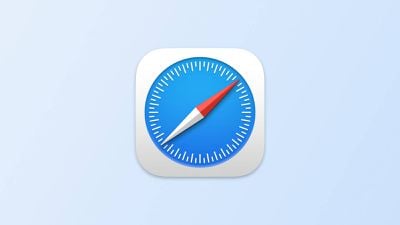Apple to Address '0.0.0.0' Security Vulnerability in Safari 18
Apple plans to block websites from attempting to send malicious requests to the IP address 0.0.0.0 on macOS Sequoia, according to Forbes. The means the change will be part of Safari 18, which will also be available for macOS Sonoma and macOS Ventura.

This decision comes after researchers from Israeli cybersecurity startup Oligo Security said they discovered a zero-day security vulnerability that allows a malicious actor to access private data on a user's internal private network. The researchers will present their findings this weekend at the DEF CON hacking conference in Las Vegas.
"Exploiting 0.0.0.0-day can let the attacker access the internal private network of the victim, opening a wide range of attack vectors," said Avi Lumelsky, a researcher at Oligo Security.
The researchers responsibly disclosed the vulnerability to Apple, Google, and Mozilla. More details are available on the AppSec Village website.
macOS Sequoia and Safari 18 are currently in beta and will be widely released later this year.
Popular Stories
Apple turns 50 this year, and its CEO Tim Cook has promised to celebrate the milestone. The big day falls on April 1, 2026.
"I've been unusually reflective lately about Apple because we have been working on what do we do to mark this moment," Cook told employees today, according to Bloomberg's Mark Gurman. "When you really stop and pause and think about the last 50 years, it makes your heart ...
In the iOS 26.4 update that's coming this spring, Apple will introduce a new version of Siri that's going to overhaul how we interact with the personal assistant and what it's able to do.
The iOS 26.4 version of Siri won't work like ChatGPT or Claude, but it will rely on large language models (LLMs) and has been updated from the ground up.
Upgraded Architecture
The next-generation...
Apple plans to announce the iPhone 17e on Thursday, February 19, according to Macwelt, the German equivalent of Macworld.
The report, citing industry sources, is available in English on Macworld.
Apple announced the iPhone 16e on Wednesday, February 19 last year, so the iPhone 17e would be unveiled exactly one year later if this rumor is accurate. It is quite uncommon for Apple to unveil...
While the iOS 26.3 Release Candidate is now available ahead of a public release, the first iOS 26.4 beta is likely still at least a week away. Following beta testing, iOS 26.4 will likely be released to the general public in March or April.
Below, we have recapped known or rumored iOS 26.3 and iOS 26.4 features so far.
iOS 26.3
iPhone to Android Transfer Tool
iOS 26.3 makes it easier...
The iPhone 18 Pro Max will feature a bigger battery for continued best-in-class battery life, according to a known Weibo leaker.
Citing supply chain information, the Weibo user known as "Digital Chat Station" said that the iPhone 18 Pro Max will have a battery capacity of 5,100 to 5,200 mAh. Combined with the efficiency improvements of the A20 Pro chip, made with TSMC's 2nm process, the...
![]()



















